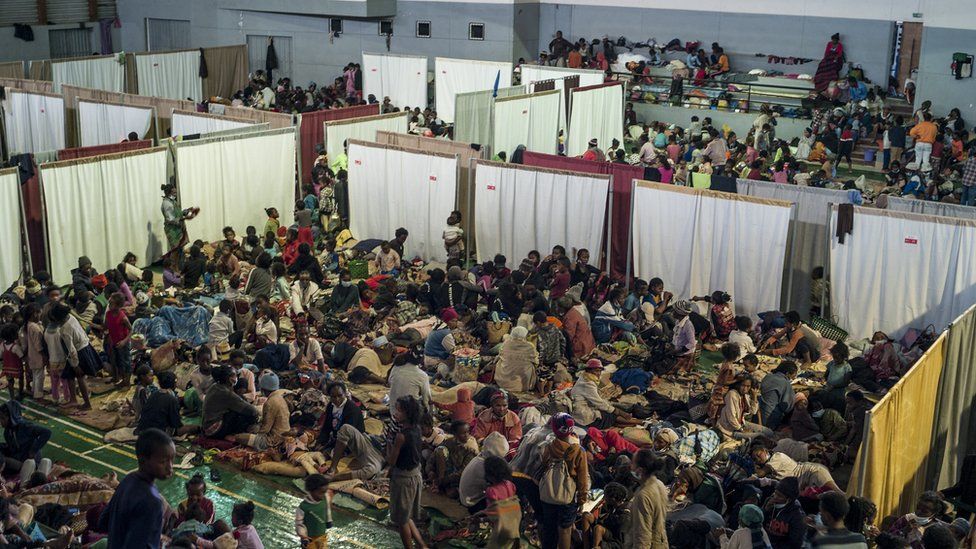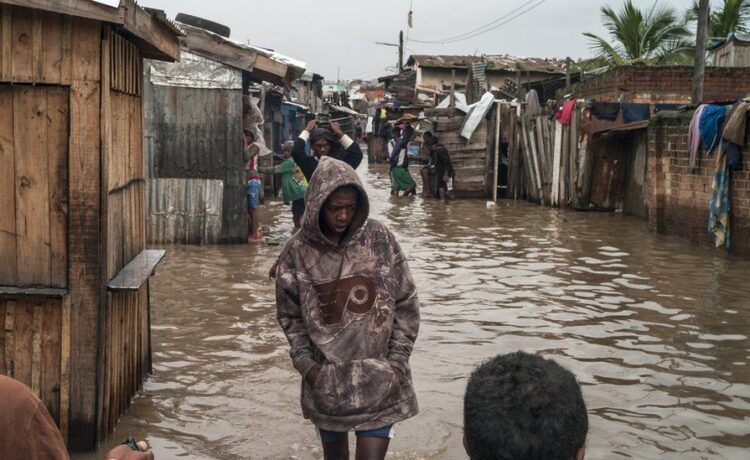Madagascar is braced for a second cyclone to hit less than two weeks after Storm Ana caused widespread destruction, killing dozens of people.
Local officials fear that landslides and flooding could leave tens of thousands of people homeless.
Some schools were closed on Friday so they could be converted into shelters.
“We are very nervous,” said Pasqualina Di Sirio, who heads the WFP’s programme on the Indian Ocean island.
The WFP (UN World Food Programme) has prepared food stocks to distribute to those in need, while some people have already been evacuated, she said.
On Friday, residents of the capital, Antananarivo, were trying to reinforce their homes by putting bricks on their roofs to stop them blowing away.
“I’m really scared because it is said that the cyclone will be very strong,” one man, Nivo, told Reuters news agency. “They say on TV that the winds will blow away people.”
With wind speeds of up 200 km/h (125 mph), experts fear that Cyclone Batsirai could be even more powerful than Storm Ana, which also hit Mozambique, Malawi and Zimbabwe.
Rainfall of 30cm (12 inches) is forecast on Saturday, raising the spectre of flash floods as the ground is already saturated, while the cyclone could also cause waves of 15 metres (50 feet).

Environment Minister Vahinala Raharinirina told the BBC that it could be the worst cyclone to hit the island for 17 years, affecting some 600,000 people in total.
The WFP says the recent pattern of destructive storms caused by global warming and climate change has caused loss of harvest, high food prices and increased food insecurity in the region.
“The people of Southern Africa have been on the front lines of climate extremes for many years now and each passing storm sets them back, resetting the progress made,” said senior WFP official Margaret Malu.
Experts say that extreme weather events like cyclones will become more frequent because of climate change.
Madagascar is also just recovering from the effects of an extreme drought, which was also blamed on global warming.
Ms Raharinirina said that the country had submitted a plan to the COP26 climate conference, which showed it needed $1bn (£740m) a year to adapt to the effects of climate change.
Source:bbc.com






